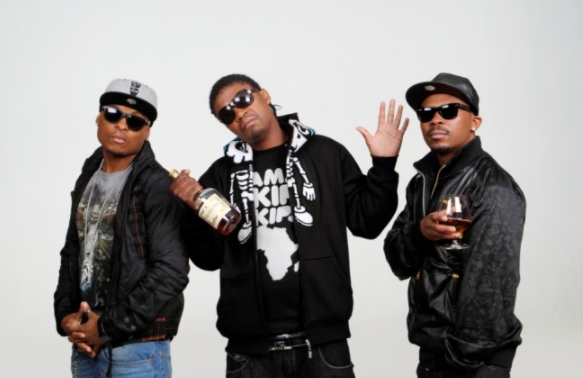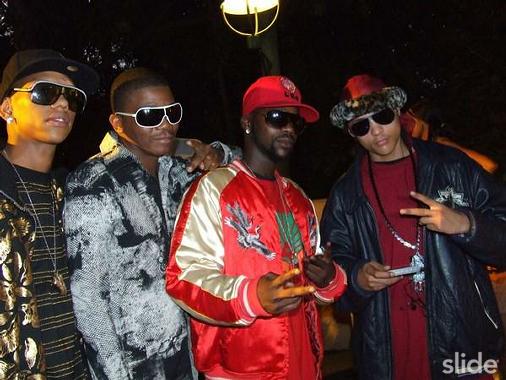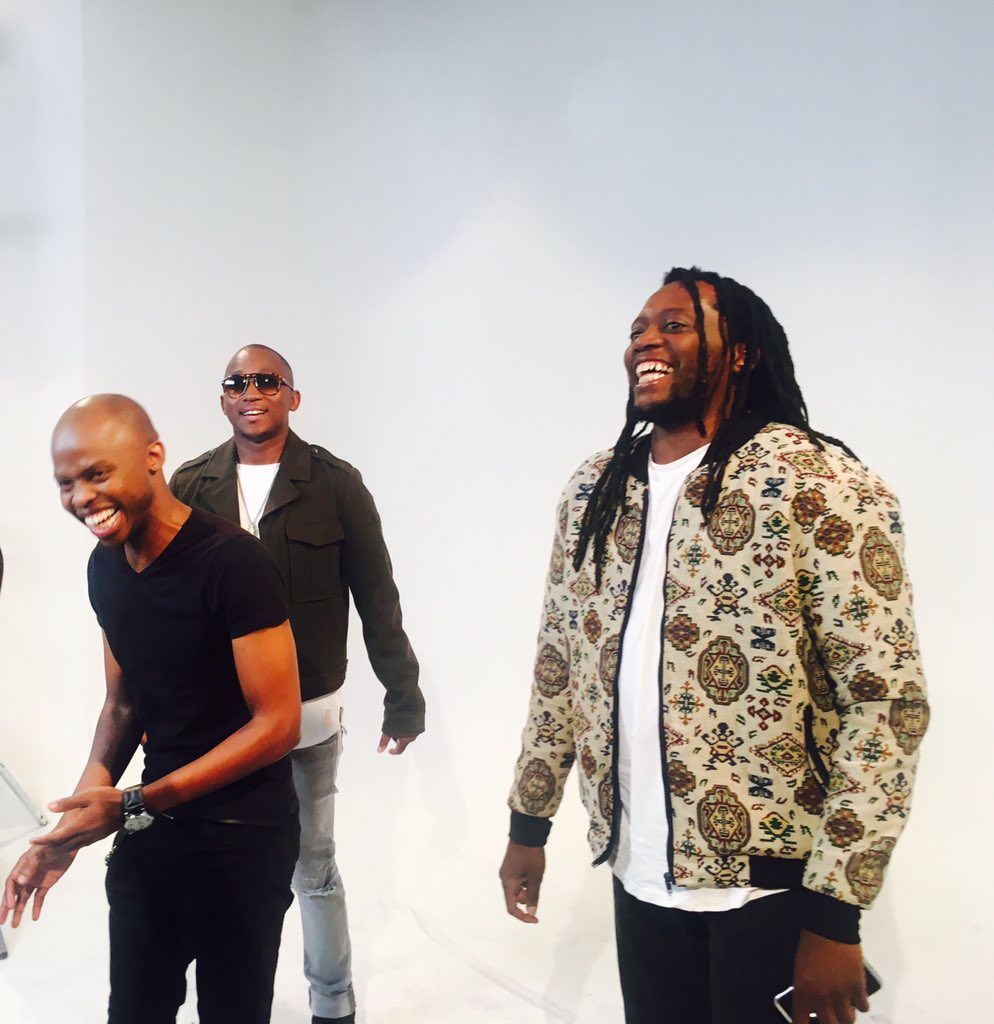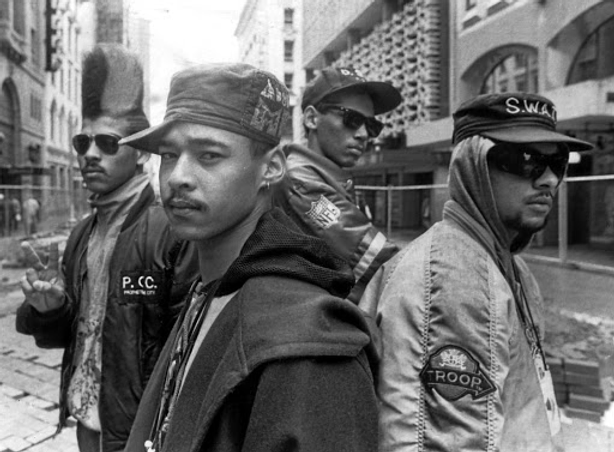South African hip-hop has evolved from an underground movement into a dominant force in the country’s music industry. Throughout the years, several groups have emerged that not only defined the genre but also laid the groundwork for future generations of artists. Here are the Top 5 South African Hip-Hop Groups of All Time, each of which played a pivotal role in shaping the local scene.
1. Skwatta Kamp
Skwatta Kamp is widely regarded as one of the most legendary and influential hip-hop groups in South Africa. Formed in the late 1990s, the group consists of Flabba, Slikour, Shugasmakx, Bozza, Infa, Nemza, and Nish. Skwatta Kamp was one of the first to blend English with vernacular languages, primarily in isiZulu, seSotho, and Tsotsitaal (street slang), which made their music resonate with the South African urban youth.
Their debut album, Khut En Joyn (2002), and their follow-up, Washumkhukhu (2004), established them as pioneers of Mzansi hip-hop. Songs like Umoya and Skwatta Kamp became massive hits, combining conscious lyrics with catchy beats. Skwatta Kamp was also known for tackling issues such as poverty, crime, and inequality, giving a voice to those in marginalized communities. Their influence on South African hip-hop is immeasurable, and their legacy lives on even after the tragic death of Flabba in 2015.
2. Teargas

Teargas exploded onto the South African music scene in 2006 with a sound that blended hip-hop with Kwaito and African rhythms. The group consisted of three members—K.O, Ma-E, and Ntukza—each bringing their unique flavor to the table. Their debut album, K’shubile K’bovu, was a massive success, driven by the hit single Chance.
Teargas was known for socially conscious lyrics that touched on themes such as inequality, life in the townships, and perseverance. They maintained a balance between commercial success and lyrical substance, appealing to both hip-hop purists and mainstream audiences. Albums like Wafa Wafa and Dark or Blue further cemented their status as one of the best South African hip-hop groups. K.O went on to have a successful solo career after the group disbanded, but Teargas remains a key part of his legacy.
3. Jozi

Jozi brought a unique blend of hip-hop, Kwaito, and traditional African sounds to the South African music scene. Formed in 2006, the group consisted of Ishmael, Da L.E.S, and Bongani Fassie (son of the legendary Brenda Fassie). Jozi’s fusion of African rhythms and hip-hop resonated deeply with audiences, helping them become one of the most successful acts of their time.
Their debut album, Muthaland Crunk, featured hits like What’s With The Attitude and Gotta Keep It Going, which propelled them into the limelight. The group was known for their high-energy performances, infectious beats, and anthemic songs that transcended genre boundaries. While the group members eventually pursued solo careers, their impact on the South African music industry remains significant, and their influence can still be heard in today’s hip-hop landscape.
4. Morafe

Hailing from Mafikeng, Morafe is one of the most respected groups in the South African hip-hop community. Formed in the early 2000s, the trio consisted of Khuli Chana, Towdee Mac, and KayGizm. Morafe’s music was deeply rooted in their Tswana culture, and they were among the first to popularize “Motswako,” a style of hip-hop that incorporates Setswana, English, and Tsotsitaal.
Their debut album, Maru a Pula, was a major success, featuring songs like Lekwalo and I Feel Good. Morafe stood out for their conscious lyricism and cultural pride, using their platform to celebrate their heritage while addressing social and political issues. Though Khuli Chana eventually became one of South Africa’s most successful solo rappers, Morafe’s influence on the Motswako movement remains undeniable, and they are celebrated as trailblazers in the genre.
5. P.O.C. (Prophets of da City)

Prophets of da City, often shortened to P.O.C., is considered one of the most important pioneering hip-hop groups in South African music history. Formed in Cape Town in the late 1980s, the group consisted of members Shaheen Ariefdien, Ready D, and others who would later become significant figures in South African hip-hop. P.O.C. rose to prominence during the apartheid era, using their music as a form of protest against the oppressive regime.
Their debut album, Our World, was politically charged, addressing racial inequality, police brutality, and social injustice. Songs like Never Again and Understand Where I’m Coming From became anthems of resistance, making them a voice for the youth during the struggle for freedom. P.O.C. didn’t just influence the music industry; they were part of a broader movement that used hip-hop as a tool for activism. Their blend of hip-hop, reggae, and funk helped shape the sound of South African hip-hop, and their legacy as pioneers remains intact.
Honorable Mention: H2O, Entity & Optical Illusion
H2O, Entity & Optical Illusion are other noteworthy groups that helped shape the South African hip-hop landscape. H2O Known for their hit It’s Wonderful, H2O brought a mix of hip-hop and reggae influences that captured the attention of listeners in the 2000s. Entity was a pioneering hip-hop trio made up of AKA, Buks, and Kamza, who helped pave the way for future generations of rappers in South Africa. The group gained popularity in the early 2000s with their energetic style and fresh approach to music. Though they only released one album, Royal School of Hip-Hop (2005), the group’s influence is still felt, particularly through AKA’s subsequent solo career. Their track Touch & Go remains one of their standout songs, and Entity’s short but impactful run in the scene laid the foundation for AKA’s success as one of SA’s top hip-hop artists. Optical Illusion, a hip-hop group based in Cape Town, played a critical role in laying the foundation for South African hip-hop in the 1990s. Made up of members Hamma, Reason (not to be confused with the rapper Reason HD), and Krook’d tha Warmonga, the group was one of the first to take local rap to a national audience. Their work on tracks like Clapslaps and Hip-Hop Boom Bap showcased their lyrical prowess and production skills, earning them a dedicated following in the underground scene.Their unique style and energetic live performances earned them a spot among the greats in the South African music industry.
These five hip-hop groups—Skwatta Kamp, Teargas, Jozi, Morafe, and P.O.C.—played a vital role in establishing and evolving South African hip-hop. Each brought something unique to the table, from Skwatta Kamp’s pioneering use of vernacular rap to P.O.C.’s powerful political messages. Their influence continues to shape the local scene, and they have all earned their place in the history of South African music.

